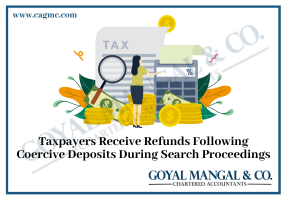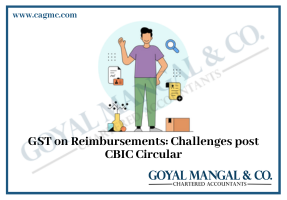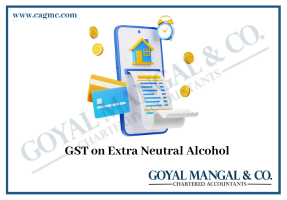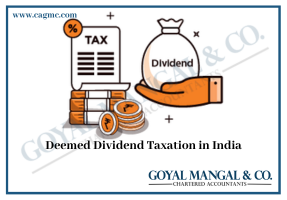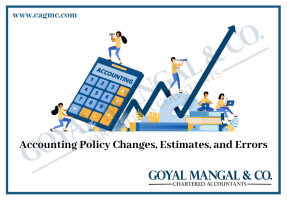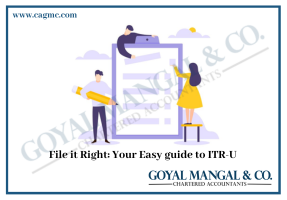
A company’s Master data/ details vital information in today’s business dynamics and helps in making well-informed decisions. To know or have access to the company’s master data/ details, it will be helpful for business partners, potential investors, or curious customers. In this article, we will discuss the essential procedure of how to check a company’s master data/company details. The article will guide you through financial stability to key personnel equipment to define the company’s identity.
| Table of Content |
Overview of the Company’s Master Data
A company’s master data refers to the core and fundamental details, which gives a basic understanding of the business organization. It provides critical information that remains stable over time and is foundational to the company’s recognition and operations. These details give the basis for several business processes and help in deciding within the business entity. Here are key elements generally involved in the company’s master data:
- Basic Company Information:
- Legal name of the Company/LLP
- Business structure (e.g., Public, Private, Section-8 etc.)
- Registration number
- CIN
- Director Details
- Charges (Details of Secured Loans)
- Registered address and contact details
- Financial Data:
- Revenue and profit/loss statements
- Balance sheets
- Cash flow statements
- Financial ratios and performance metrics
- Organizational Structure:
- Hierarchy of organizational units and subsidiaries
- Key personnel (executives, directors, managers)
- Reporting structures
- Product and Service Information:
- Description of products and services offered
- Product codes or identifiers
- Regulatory and Compliance Information:
- Compliance with industry regulations
- Legal and regulatory filings
- Certification and accreditation details
- Historical Data:
- Company history, milestones, and significant events
- Mergers and acquisitions
- Changes in leadership
Who can have access to the Company’s Master Data?
Access to a company’s master data as available on MCA is typically is available as a general information on the Ministry’s website which can be accessed on https://www.mca.gov.in/content/mca/global/en/mca/master-data/MDS.html
The accessibility of master data depends on various factors, including the type of information, the role of the individual or entity requesting access, and legal and regulatory considerations. Here are the key stakeholders who may have access to a corporate master data:
- External Stakeholders: The master data of company and LLP plans are discussed with the investors, stakeholders, business partners, suppliers, government bodies, credit rating agencies, and consumers.
- Internal Stakeholders: These include the senior management, executives and employees of the company.
- Third-party authorization: These are auditors and legal advisors for financial auditing, mergers, acquisitions, and regulatory compliance.
- General Public Access
How significant it is to know or have access to the Company’s Master Data?
There are several reasons to know the corporate master data, and here are:
- To help in making informed decisions;
- Help to identify the potential risks;
- Compliances with legal and regulatory;
- Improves management in the supply chain;
- Helps in making strategic plans for the company;
- To know the exact operational efficiency;
- Transparency in communication with the stakeholders;
- Helps in merger and acquisition operations;
- Integration in technologies;
- Improves management in intellectual property rights
How to Check the Company’s Master Data/ Company’s Details?
Here is a step-by-step procedure to help you know the company’s master data:
- Official Company Website: Start by visiting the company’s official website. Look for dedicated sections such as “About Us,” “Investor Relations,” or “Corporate Information.” Look into details such as the history, vision, mission and values of the company.
- Financial Reports: Go through the financial reports of the company, generally available in “Investor Relations”, which will be from the website. Check for balance sheets, annual reports, and income statements to know about financial activities.
- Regulatory Filings: Look for the filings of companies with government bodies like the Securities and Exchange Board of India (SEBI) in India. This provides the general details regarding the company’s risks, operations and financial status.
- Business Directories: Utilize business directories like Bloomberg, Dun & Bradstreet, or industry-specific databases to gather information on the company’s size, revenue, and industry ranking.
- Social Media Presence: Go through the company’s social media accounts like Twitter, LinkedIn, Facebook, Instagram, etc. for daily updates.
- Releases: Read recent news articles and listen to current press releases about the company. It leads to providing insights like collaborations, improvements, and leadership amendments.
- Online Reviews and Reputation: Check customer reviews and feedback on platforms like Glassdoor, Yelp, or industry-specific forums to gauge the company’s reputation and how it treats its employees and customers.
- Industry Reports and Analysis: Access industry reports and analyses to understand how the company fits into the larger market landscape and its competitive positioning.
- Government Databases: Check government databases for information on the company’s registration, compliance history, and any legal or regulatory issues. In India, one can check the database from the Ministry of Corporate Affairs (MCA). Go through MCA master data search/ MCA company search for company director’s details MCA.
- Networking and Professional Connections: Leverage professional networks and connections to gather insights from industry experts, colleagues, or acquaintances who may know the company.
-
- Credit Rating Agencies: Search for reports issued by credit rating agencies to know the company’s financial stability and creditworthiness.
- Patents and Trademarks: If applicable, explore intellectual properties owned by the company. This can provide insights into its innovation and intellectual property.
- Customer References: Look for existing and former consumers for real-time experiences and a better understanding of the company’s goods and services.
- Corporate Governance Documents: Look into documents like corporate governance such as ethical policies, governance framework and code of conduct.
Final Words
In today’s era, where information is key, this comprehensive guidance provides you with a tool to measure the web of a company’s data. It is important to know the ability to check the company master data and then take steps accordingly. In the world of business, to know the master data is an art and skill. Whether you are an entrepreneur, collaborator, investor, or an individual curious about the understanding of the company’s master data and stay up-to-date.

